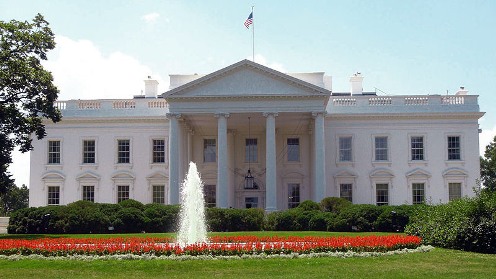
There won’t be a squeaky clean ending to the Democratic battle for the 2008 presidential nomination. The knife fight has begun already — and I only hope that maturity in the end prevails so that the side that edges out victory has the magnanimity to deal well with the almost-winners from the other side.
There is simply no chance that one side will completely vanquish the other. A negotiated outcome needs to be achieved — and that means give and take on both sides. The stridency and overconfidence of the Clinton camp needs to be softened. And the pretense of moral high ground that the Obama camp thinks it can sport in this race needs to be shelved. Both sides have to figure out how to accommodate the other as much as possible.
Clinton and Obama are both mixed bags. She has the health care plan I prefer. Obama has the tone in foreign policy I like. They both are carving out economic positions skeptical of the “Washington Consensus” — but the depth of their opposition to neoliberal economics is unclear as the recent debate about an Obama policy adviser’s trade views make clear.
My own disappointment in both the Clinton and Obama campaigns has been heightened in recent weeks. John McCain — because of his views on the Iraq war and his unsound approach to fixing the hemorrhage in America’s national security portfolio — makes it very tough to support his broader message and package — as much as I do admire some of his previous policy stands.
Right now, the collapsing condition of the American and global economies has my attention. Hale “BondDad” Stewart in a number of posts titled “An Empire of Debt — Collapsing Under Its Own Weight” in the blogosphere noted something that I wrote the other day and a linked article written by Harvard economist Kenneth Rogoff that is impressivley prescient with what has happened on both the strategic and economic sides of America’s global position.
Leo Hindery, a progressive CEO who has written persuasively about the need to redraw the American social contract between firms, capital, labor, and government, was John Edwards’ senior economic policy adviser in Edwards’ run for the presidency.
Recently, Hindery decided to endorse Obama — and this raises some fundamental questions of what exactly Obama’s economic policy profile is going to be. Obama campaign senior economic adviser and University of Chicago economist Austan Goolsbee, a very good guy, is nonetheless from the part of the economic policy spectrum of debate where one would not expect to find a Leo Hindery. And my guess is that the Hindery take on the economy is politically ascendant — while the back room economic policy elites in Washington are still stacking the deck for Goolsbee-oriented policies.
Which will a Barack Obama be true to?
I’m a Hindery advocate and think that America needs to develop economic strategies that produce on-shoring, not off-shoring and that there is a “smart globalization” path that is better and healthier for the US and the world than that dictated by manic neo-liberalism of the sort that Robert Rubin promoted during his Treasury Department tenure.
When Hindery endosed Obama, he wrote this:
Barack Obama believes in vigorously enforcing our existing domestic labor laws and standards. He believes in all workers having an easy and unrestricted ability to join a union, including part-time and contract workers. And he believes in affording low-wage workers the “mobility” they need in order to earn something more than low wages.
Barack Obama believes in fairer and more progressive individual income taxation, taxation which will see every American once again paying his or her fair share. How can anyone but the wealthiest of Americans be satisfied with an economy which has seen forty percent of all economic growth over the past 20 years go to only the top one percent of American families? Where half of the nation’s individual income now goes to just 2% of the taxpayers?
Barack Obama believes in incentivizing American companies to create and retain high-quality jobs here in America, instead of unnecessarily and often unfairly shipping millions of them overseas.
And Barack Obama believes that U.S. trade agreements must provide clear and measurable benefits for American workers. He believes that in order for free trade to also be fair trade, trade agreements must incorporate reasonable labor and environmental standards and prohibit illegal subsidies and currency manipulation. He believes that in negotiating trade agreements, “one size does not fit all” – it never has – and that trade agreements which are not vigorously enforced are not agreements at all, they are just so much paper.
I hope Leo Hindery is right — but I do think that those who believe in pragmatic policy choices for the country can’t just expect a Barack Obama (or a Hilliary Clinton) to know in his (or her) gut what the right policy choices are when tough decisions are before him or her. His (and her) advisers are very diverse and often in intellectual conflict internally. And thus, those who believe in a new and different course for the nation’s economy and foreign policy are going to have to fight for those views — even if the hopeful Barack Obama does become the next President of the United States.
— Steve Clemons


32 comments on “The Limits of Hope: Getting Real about the American Economy”